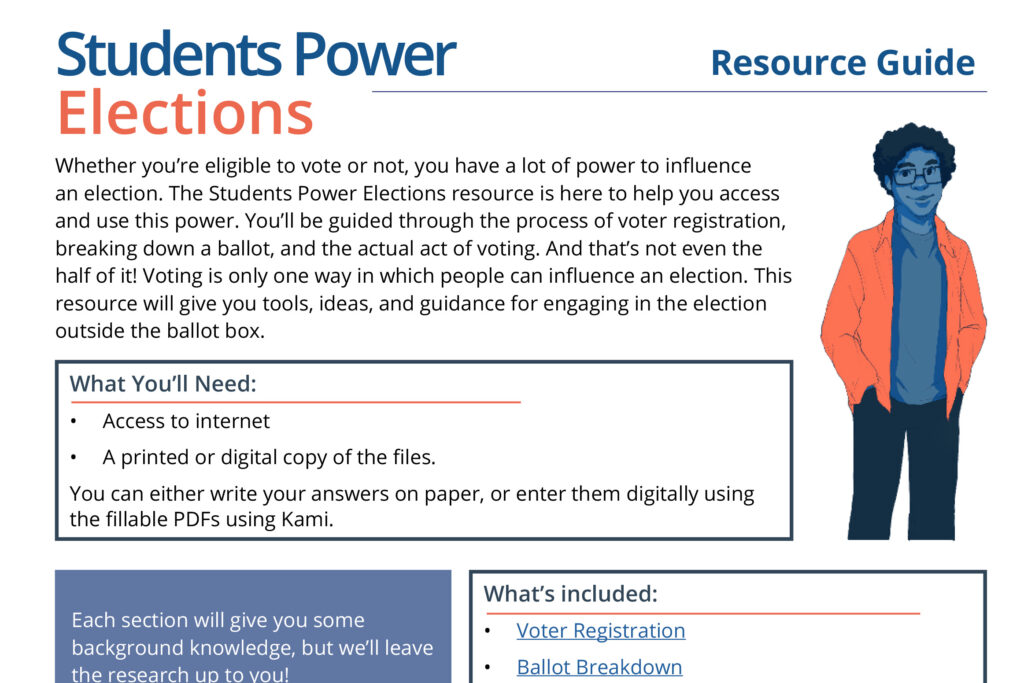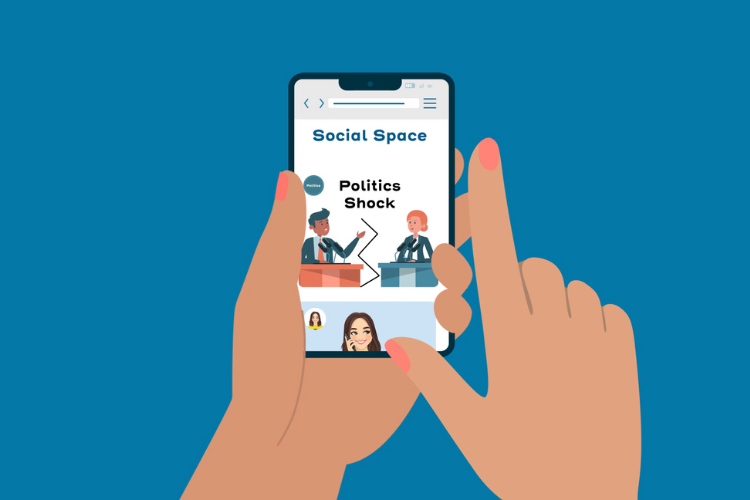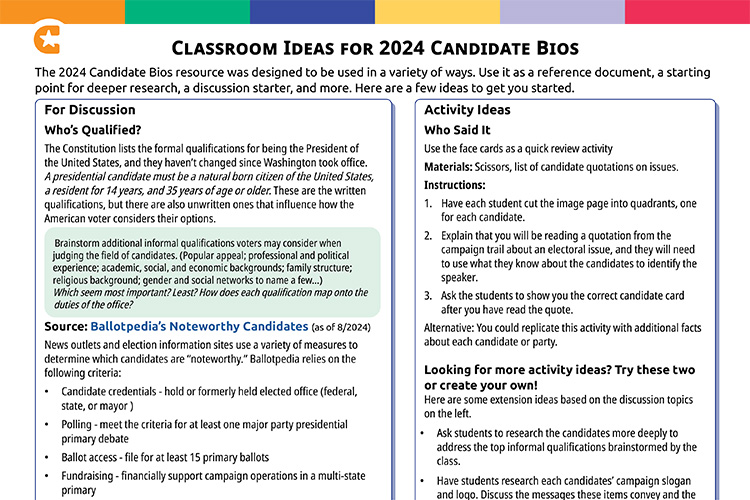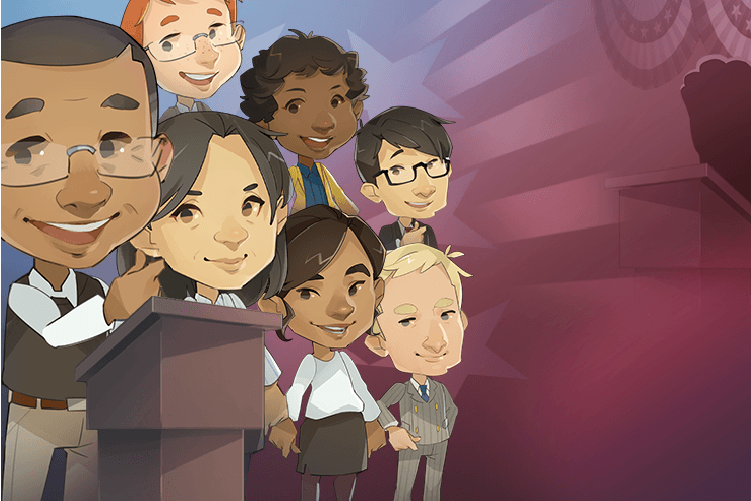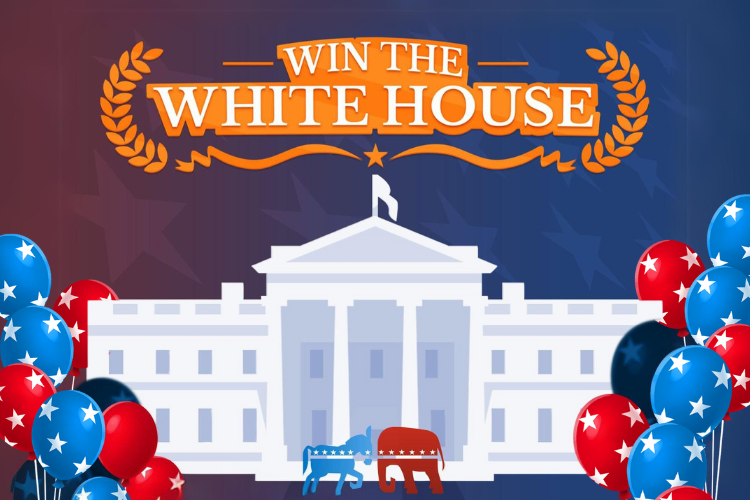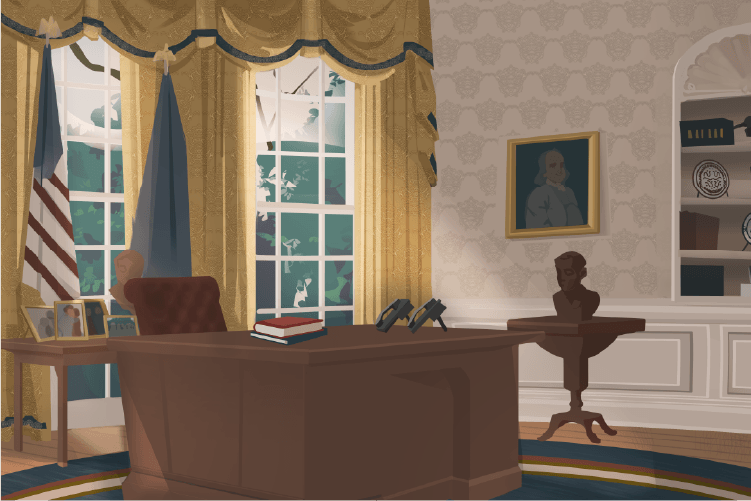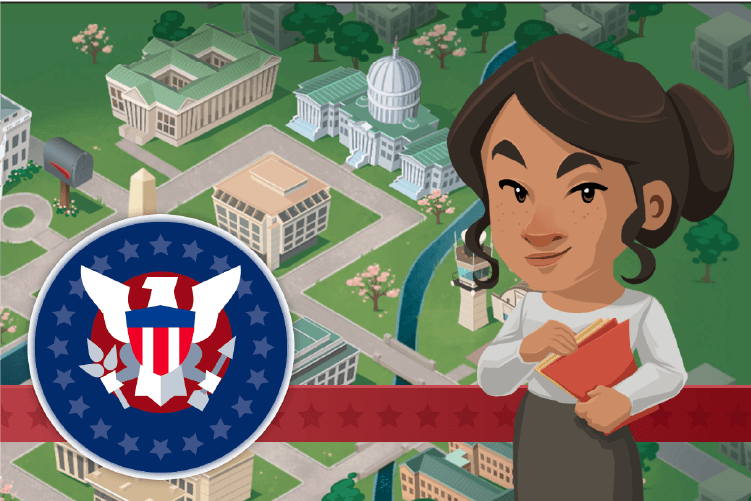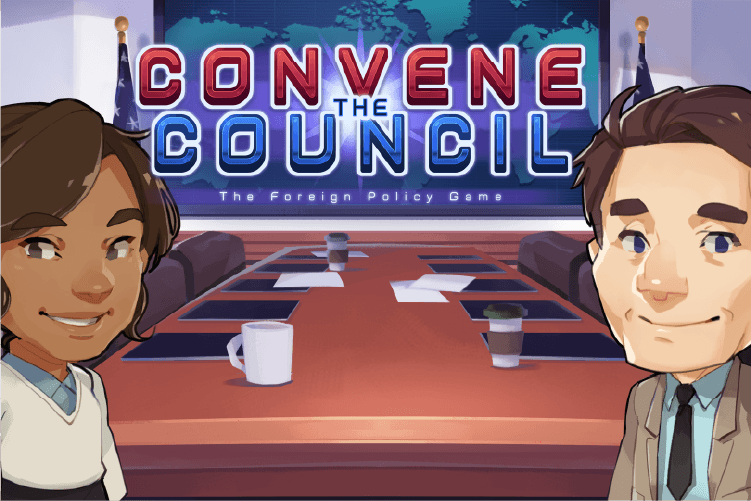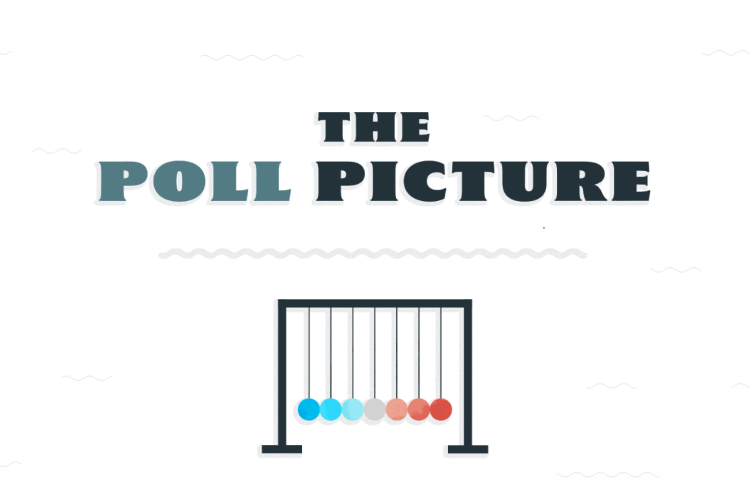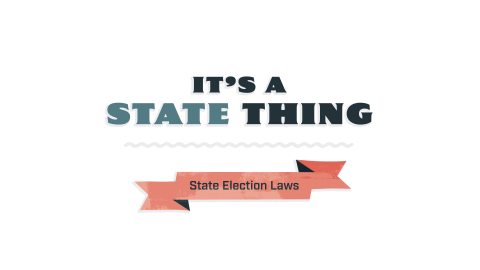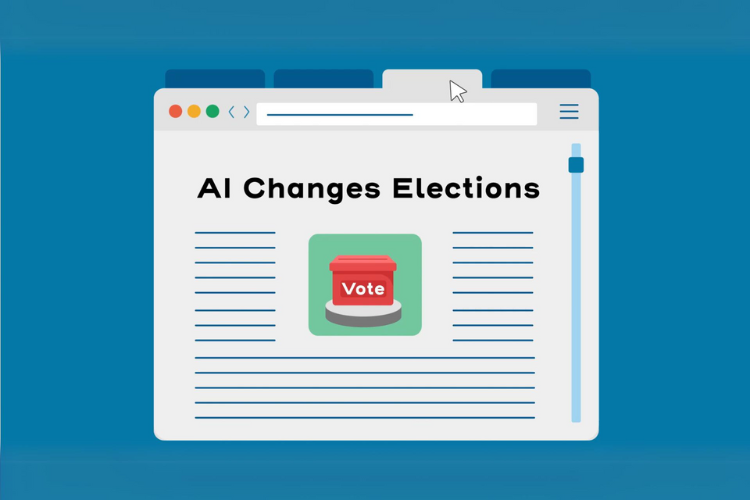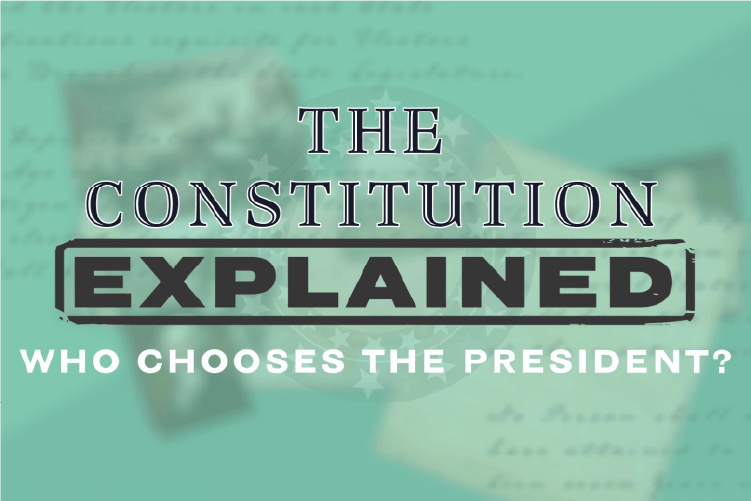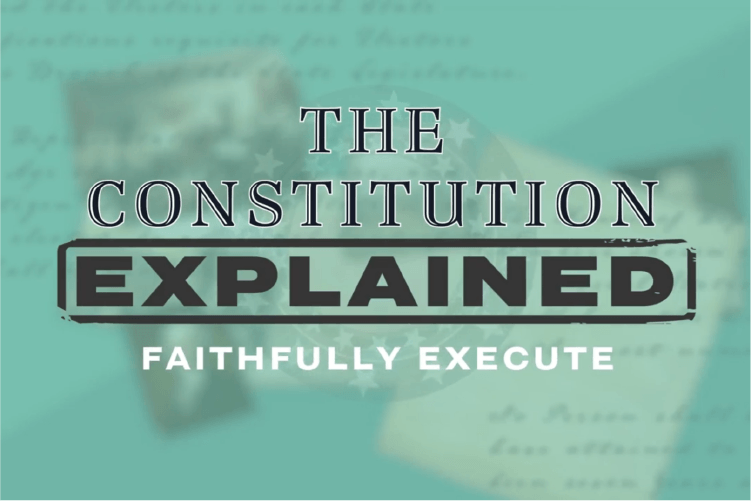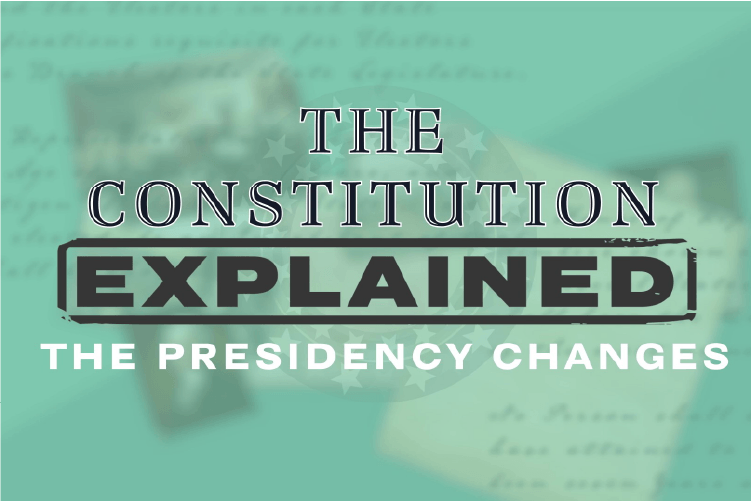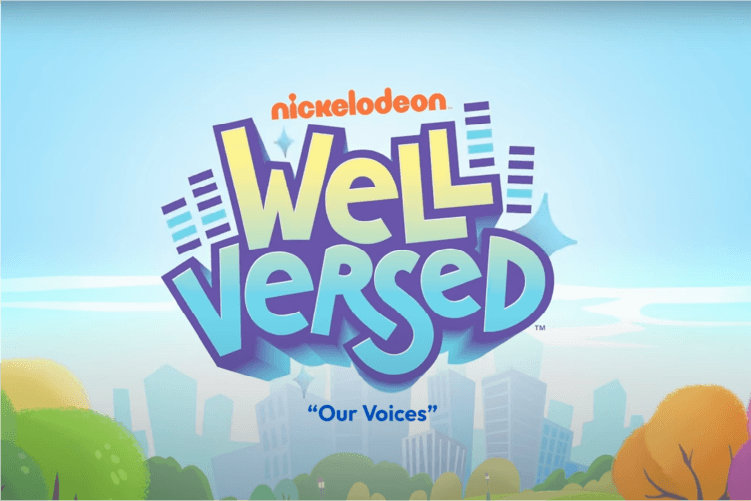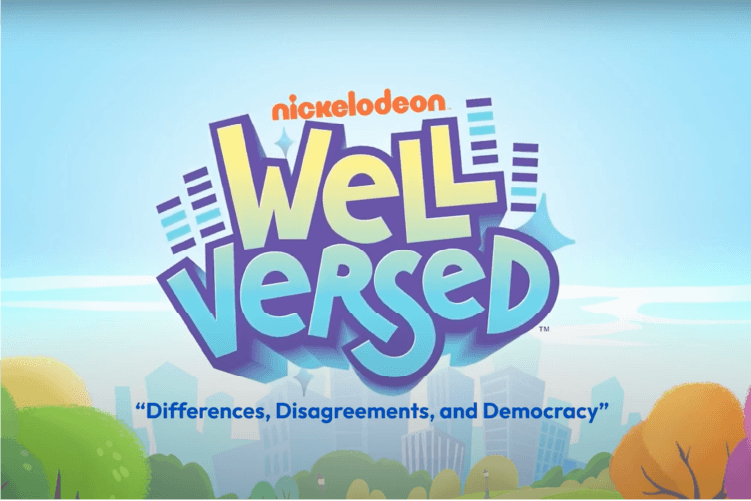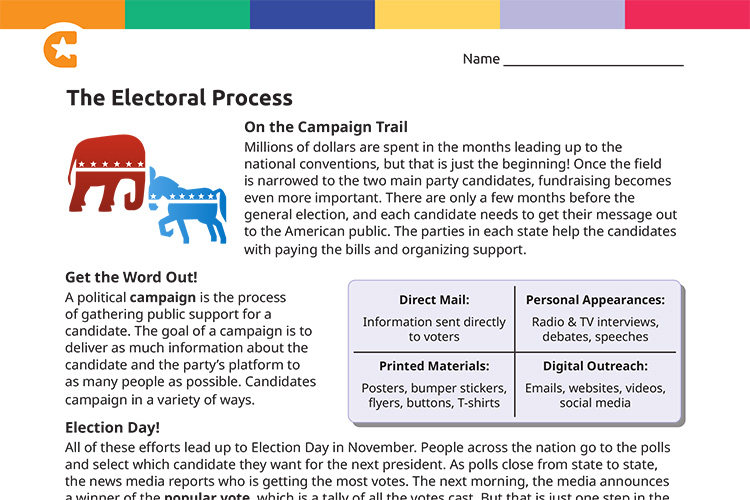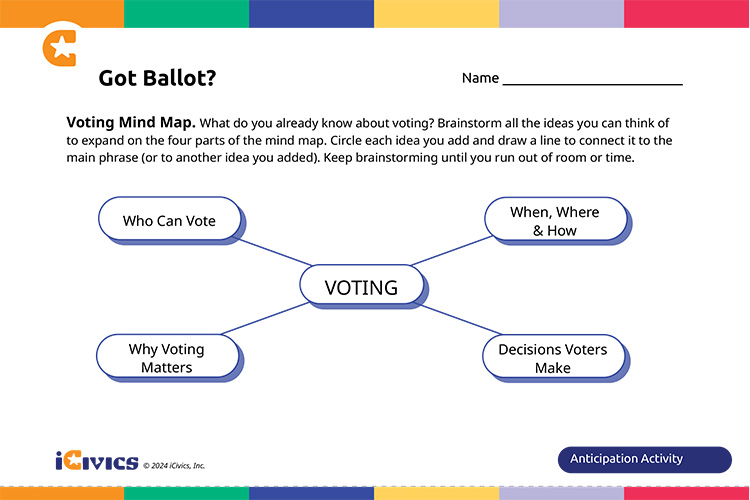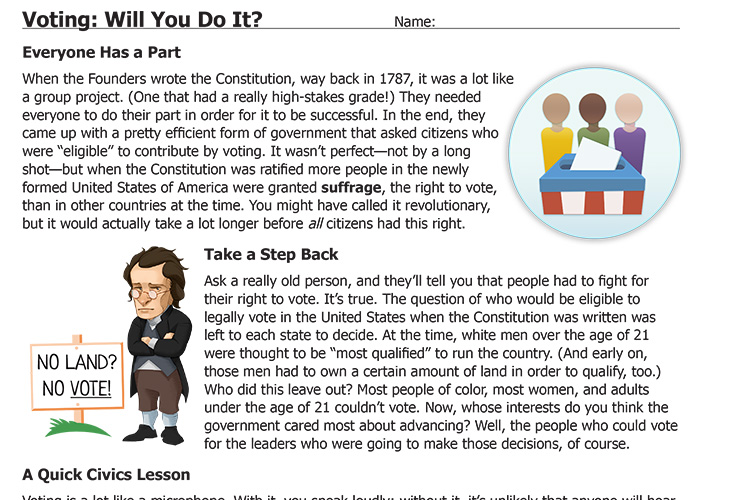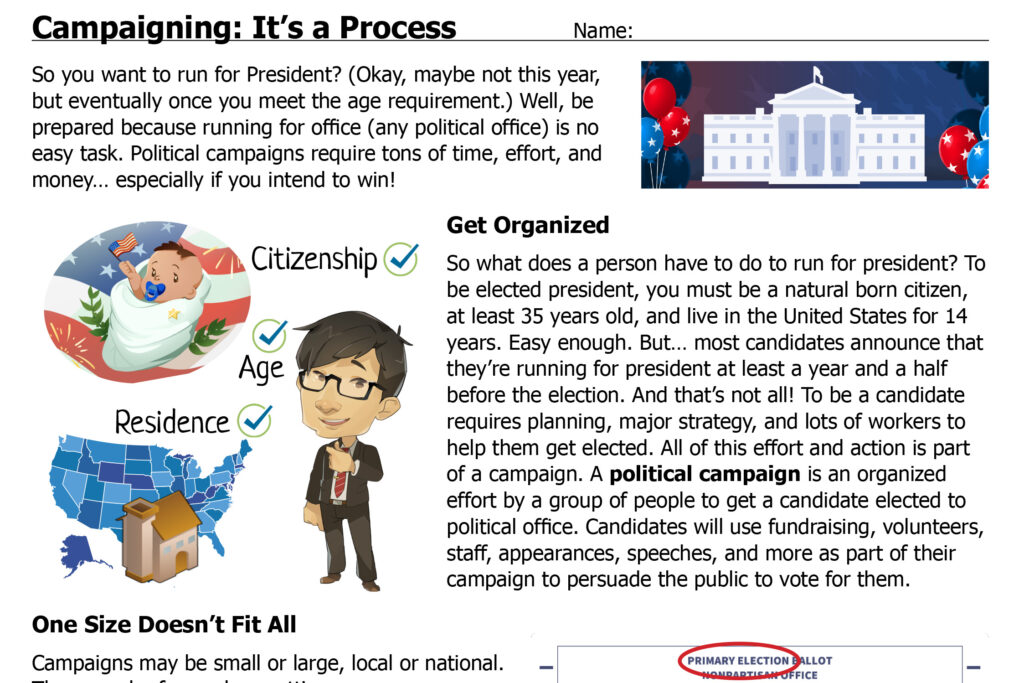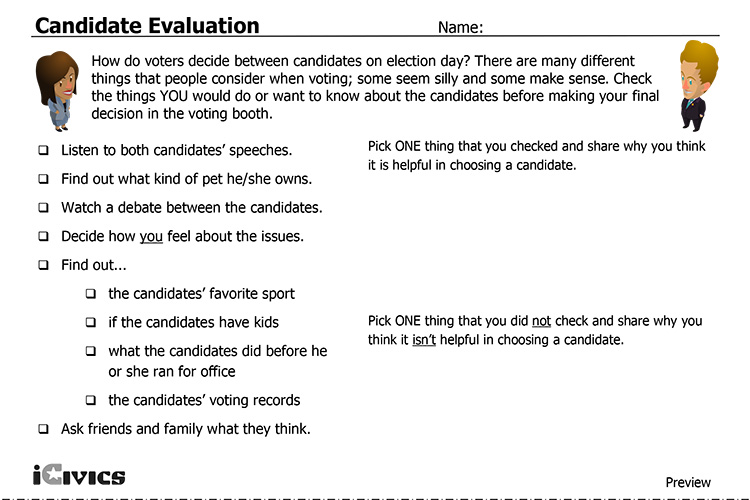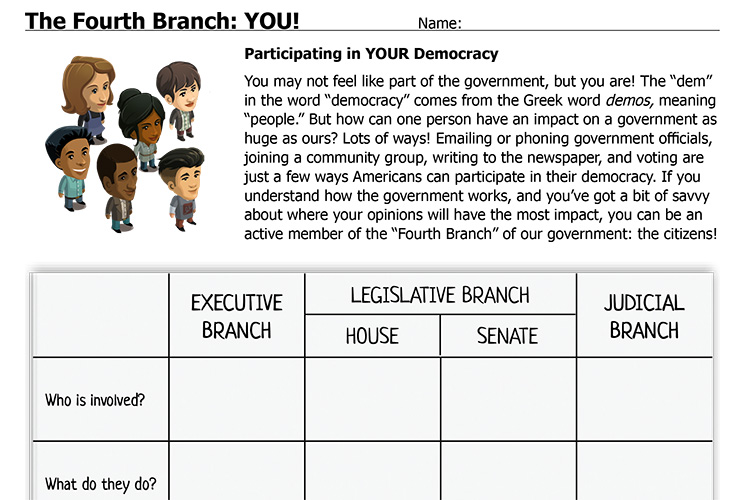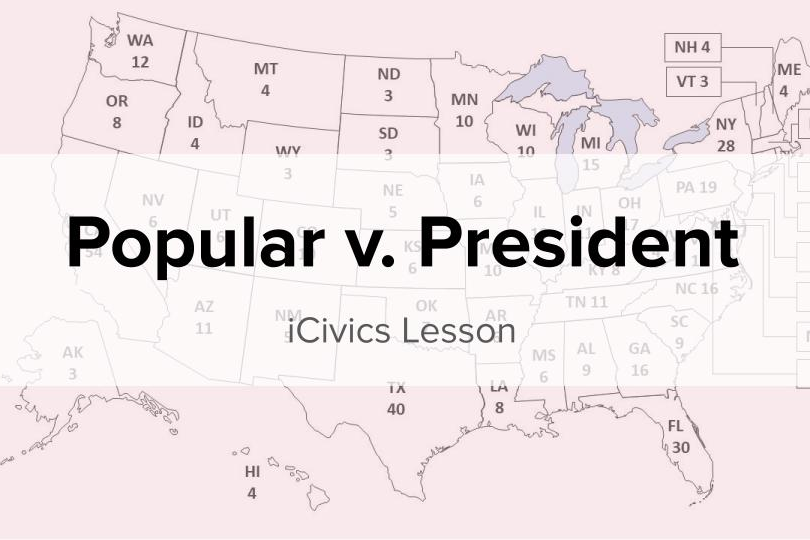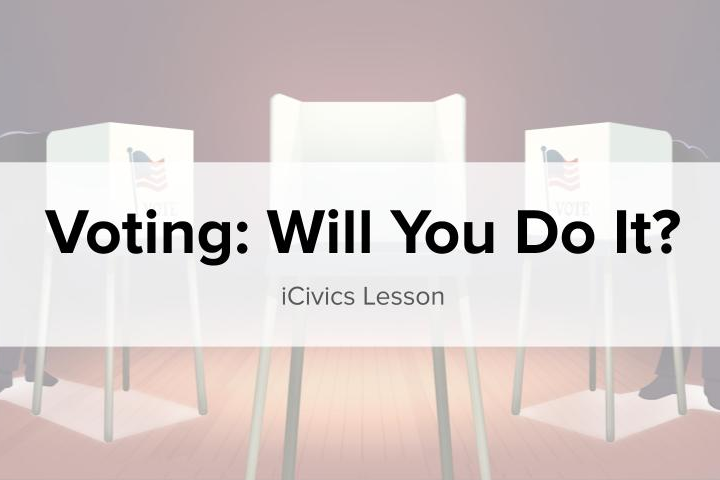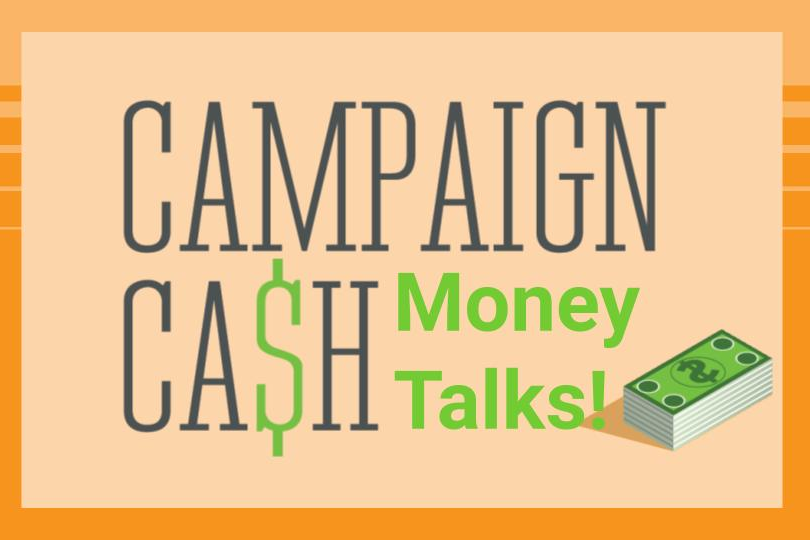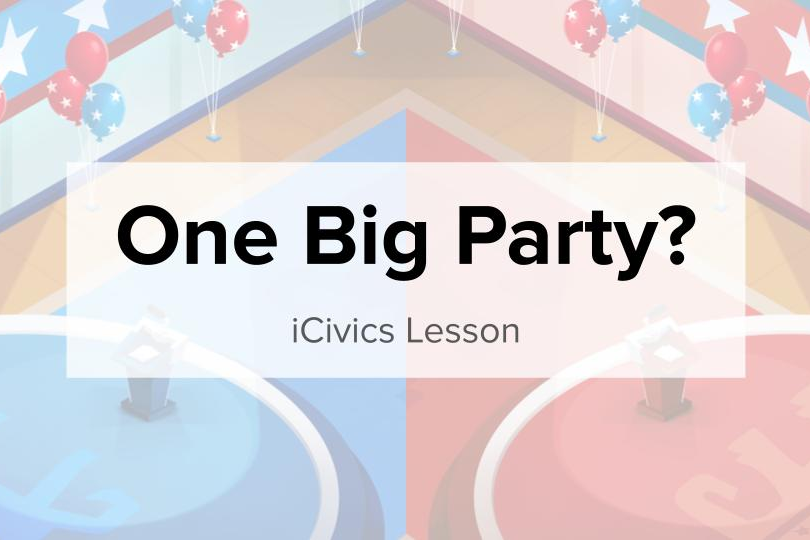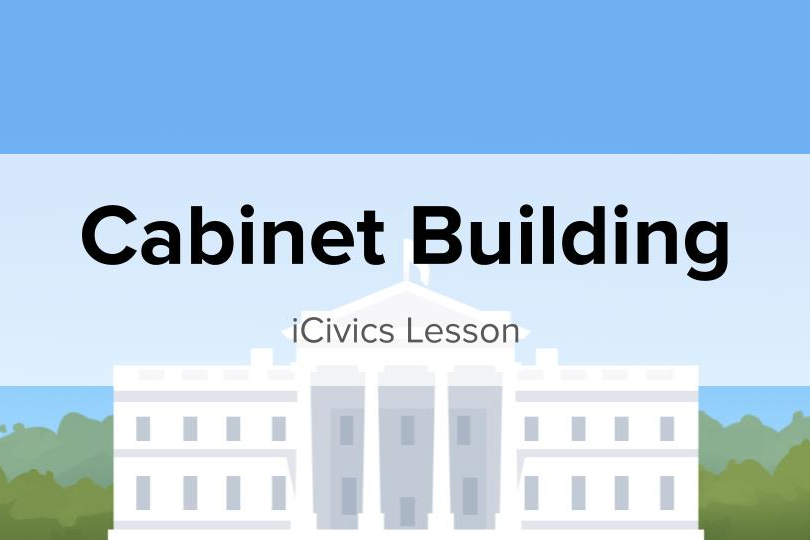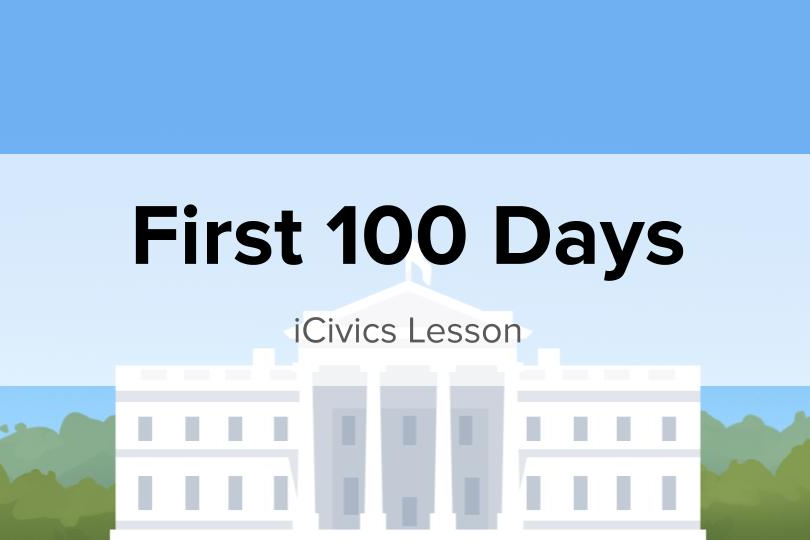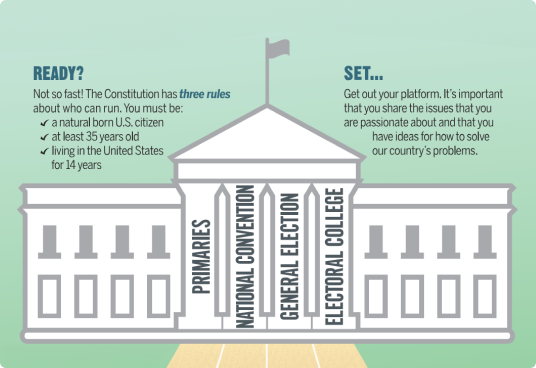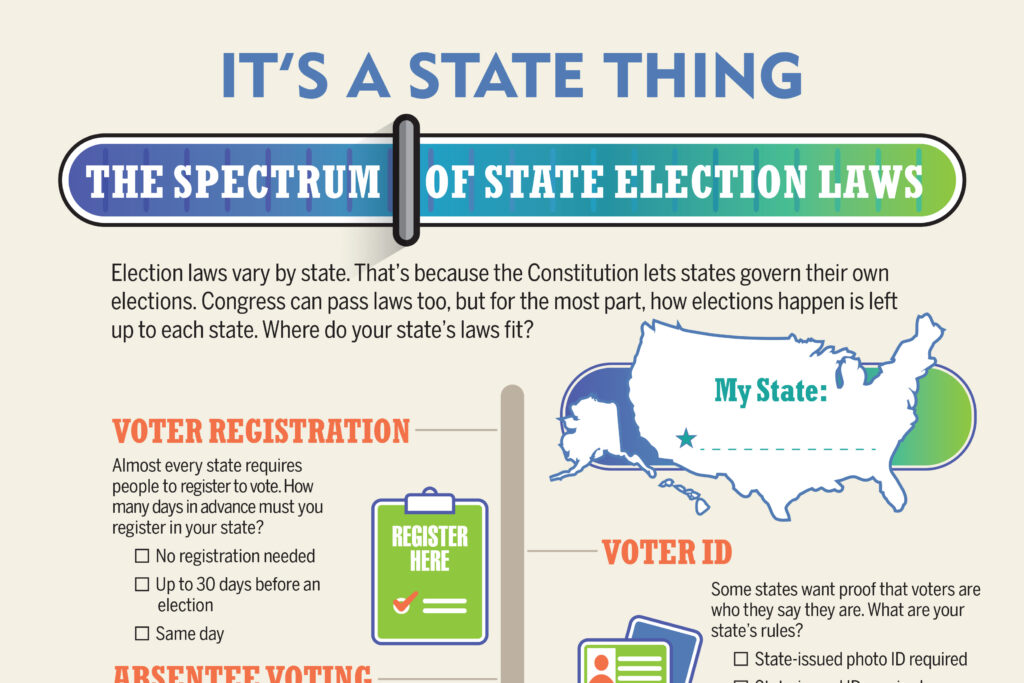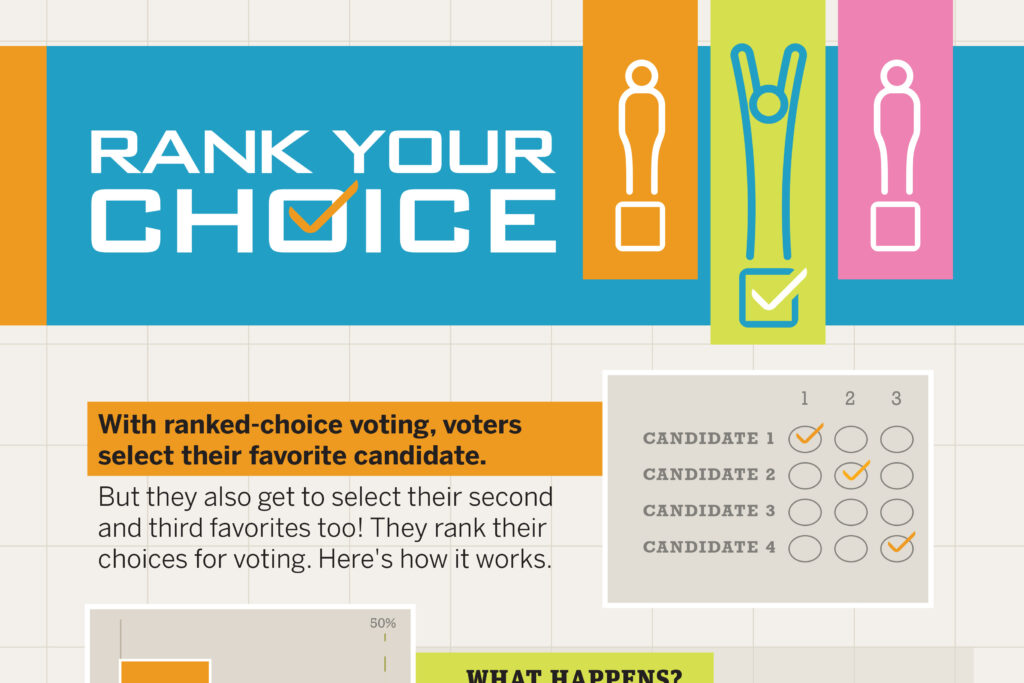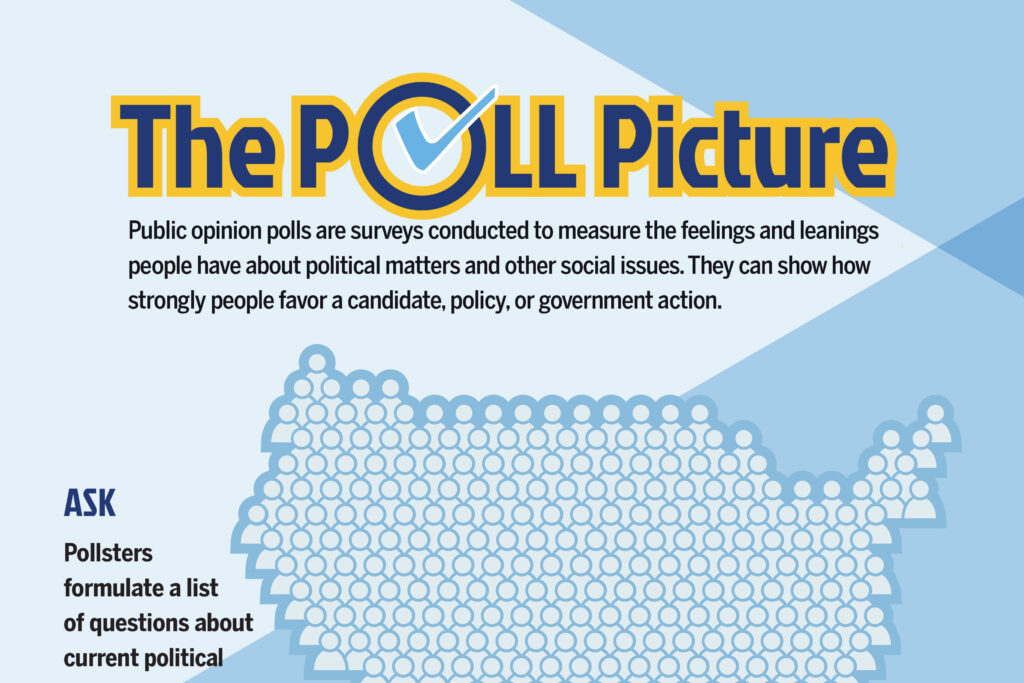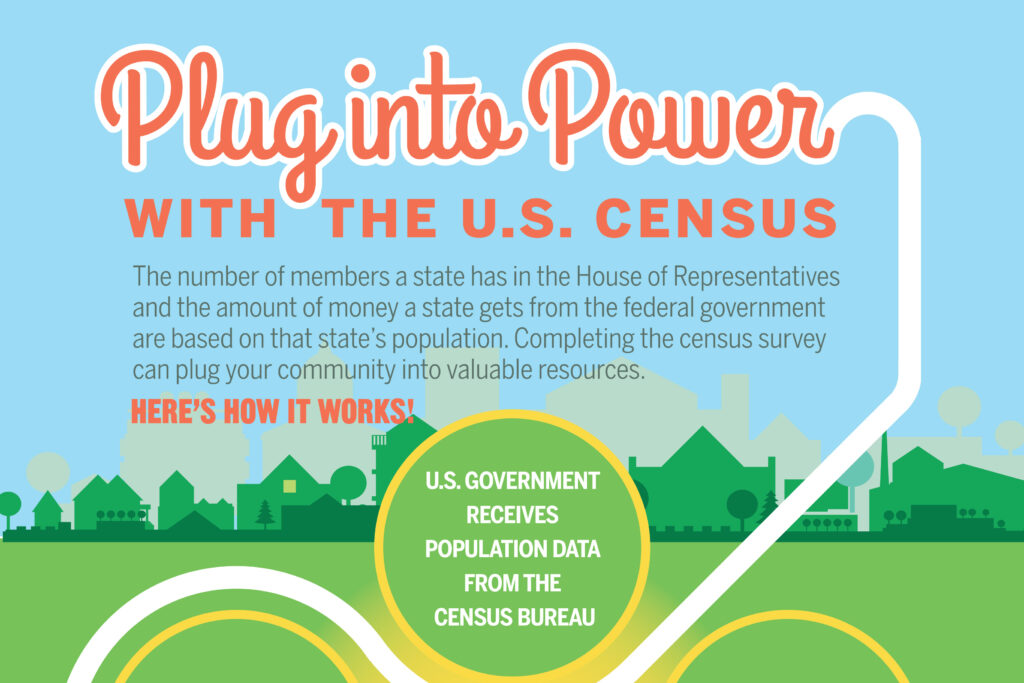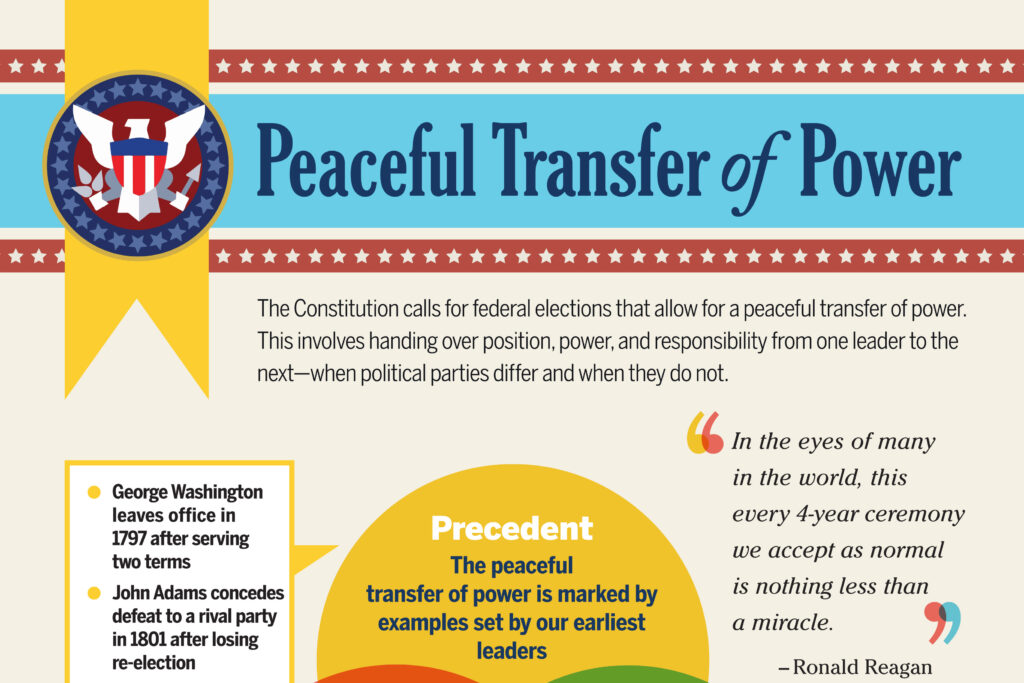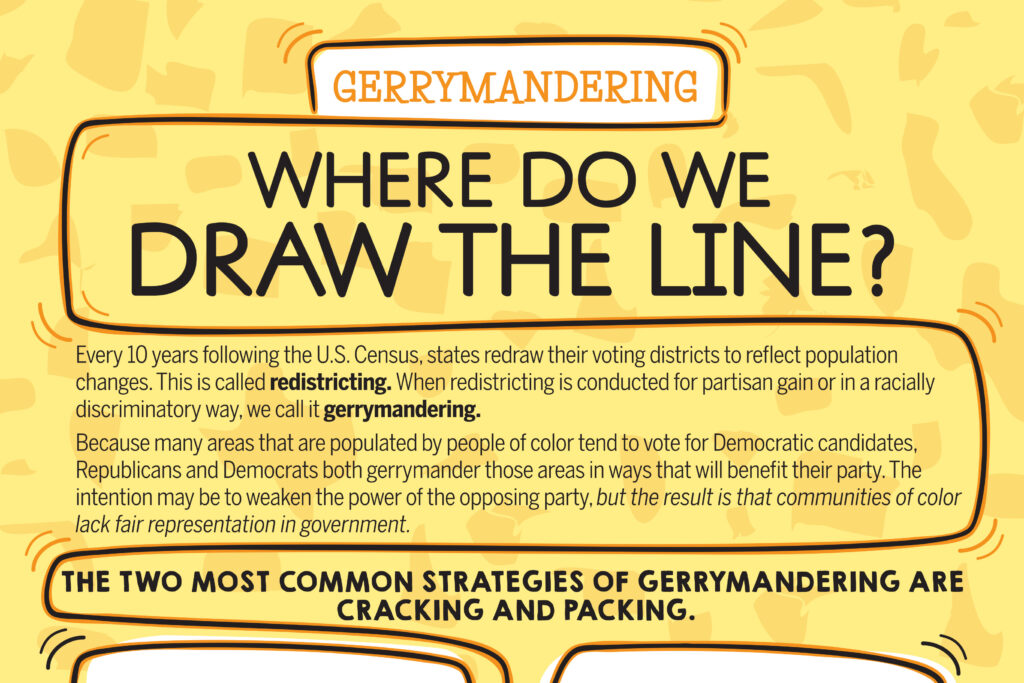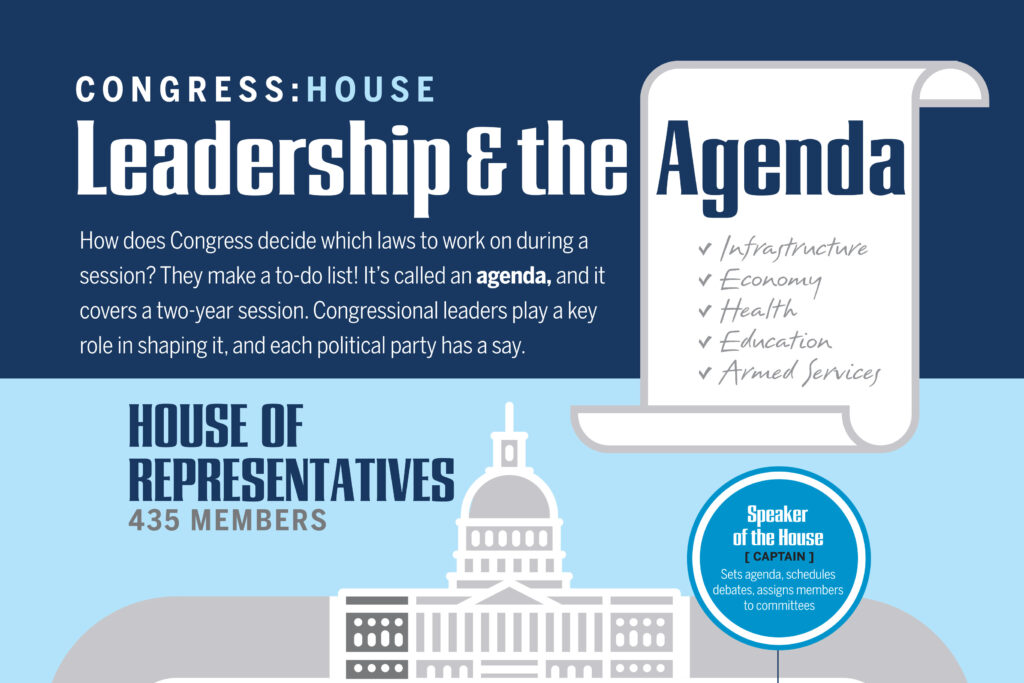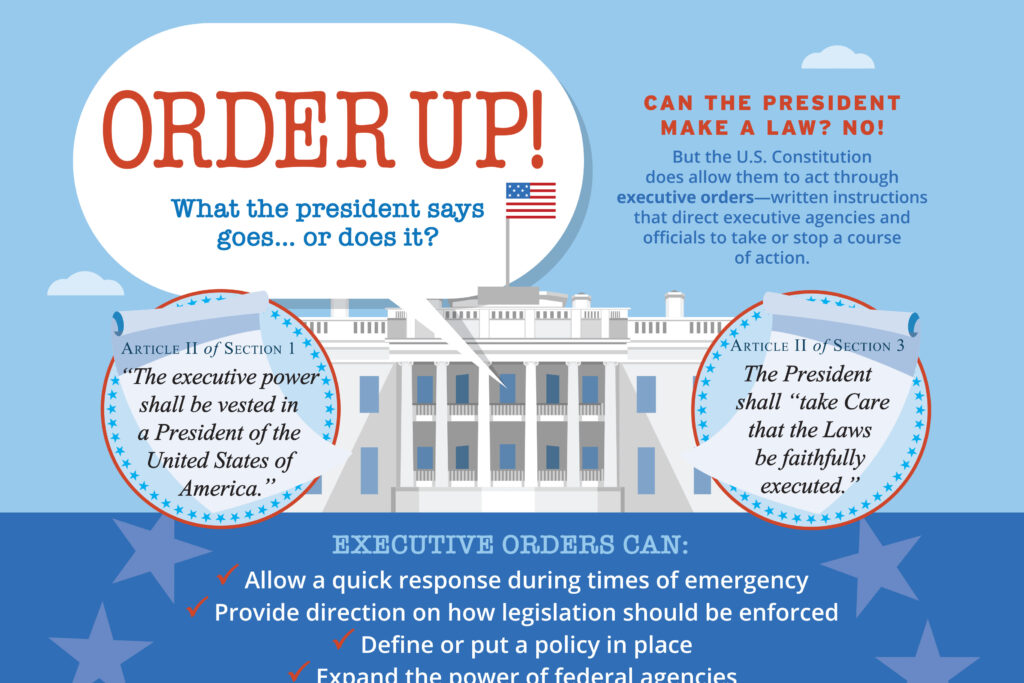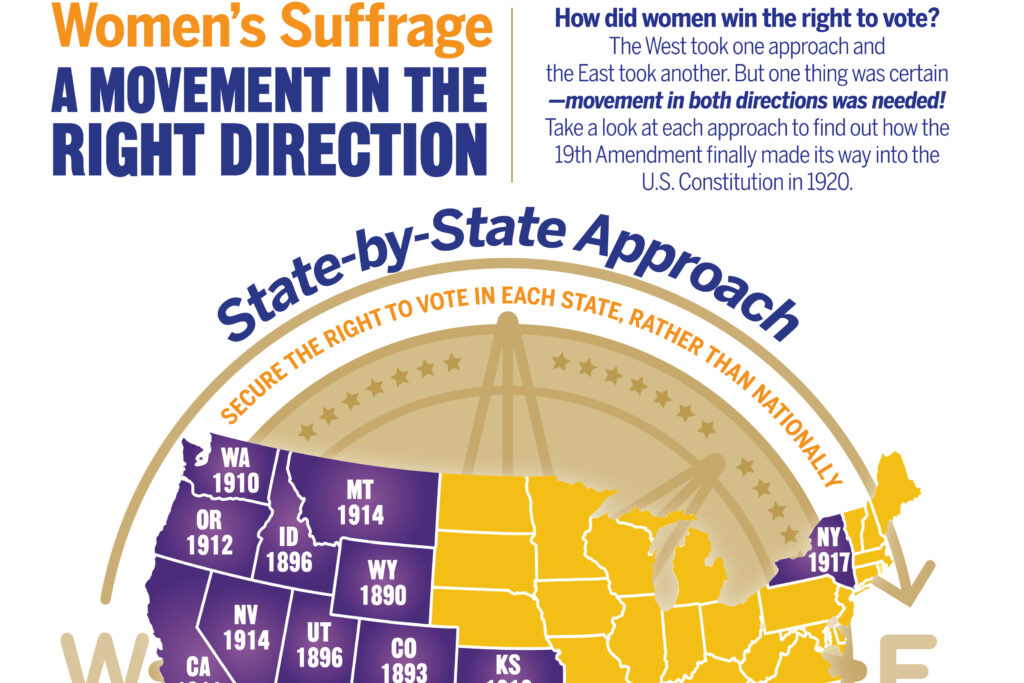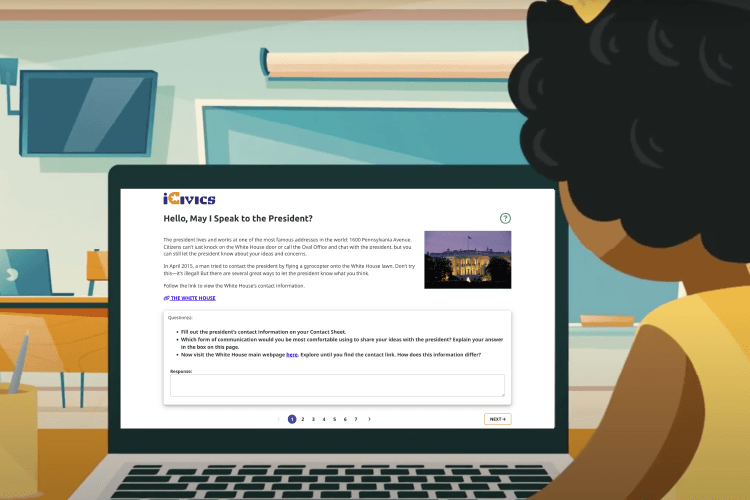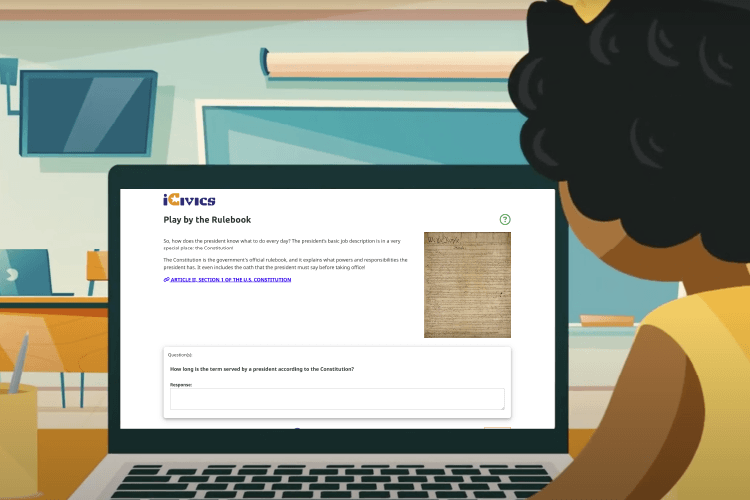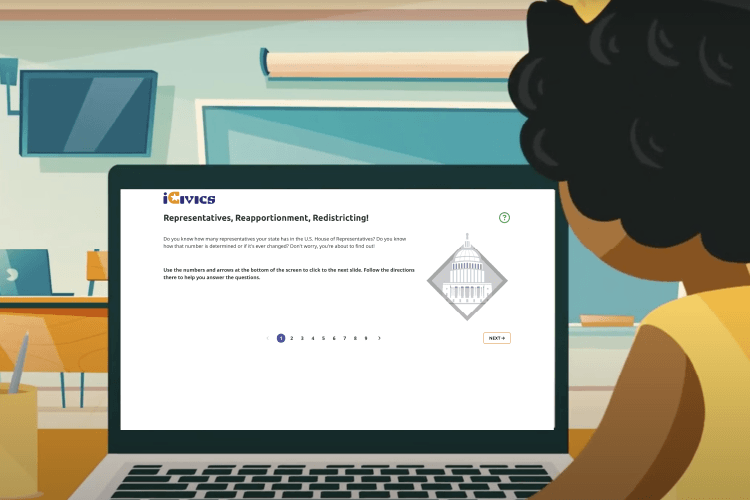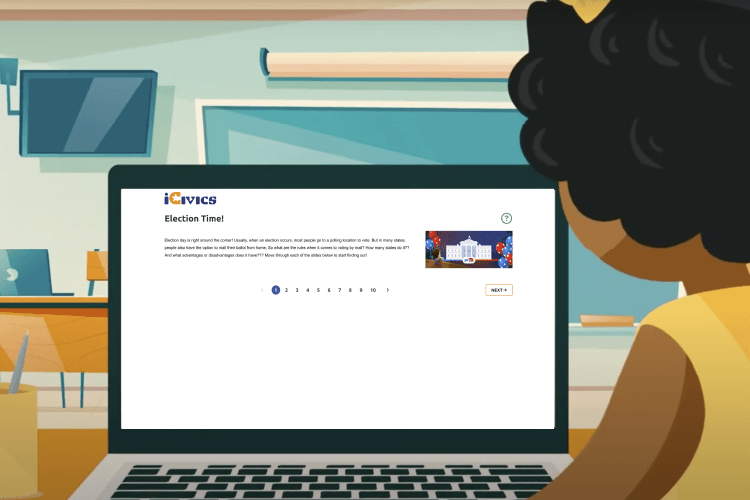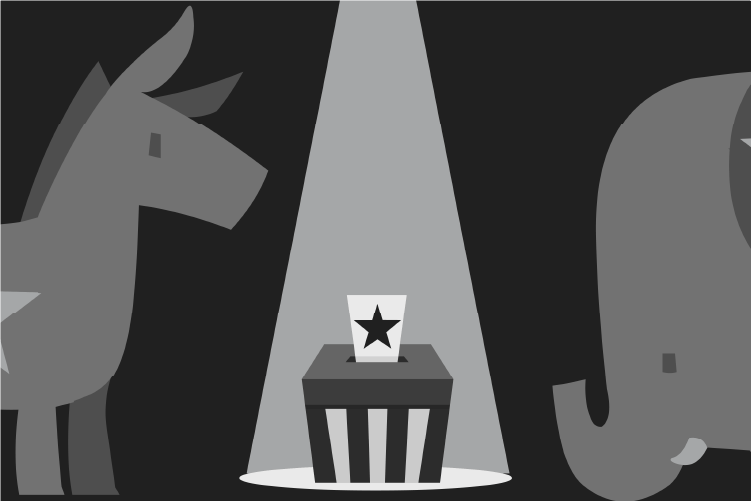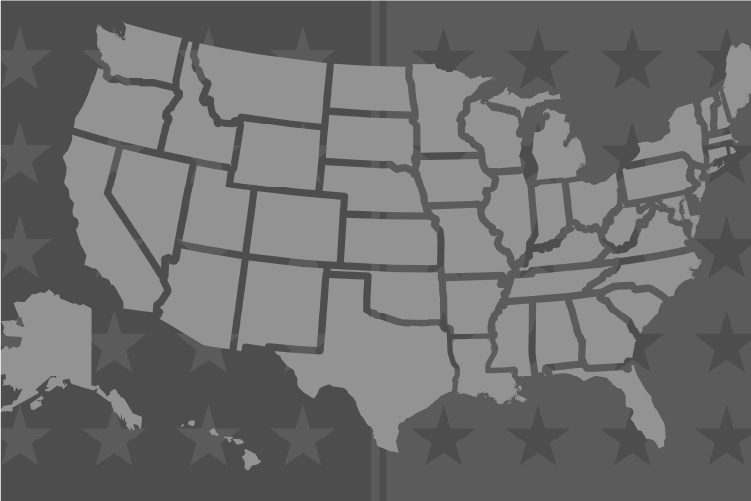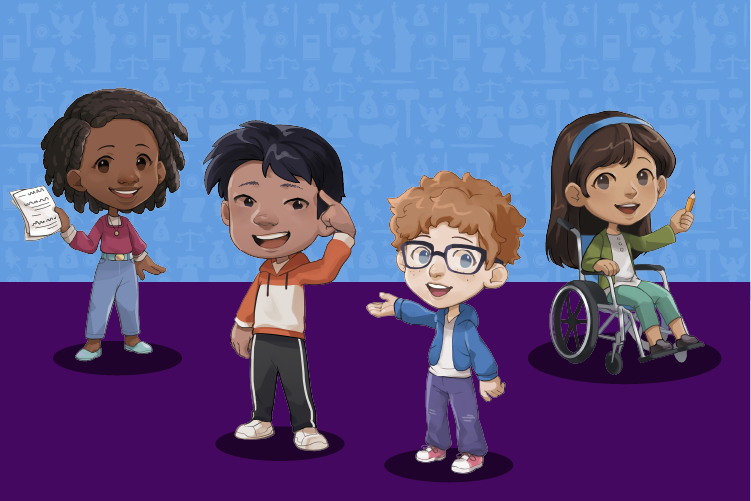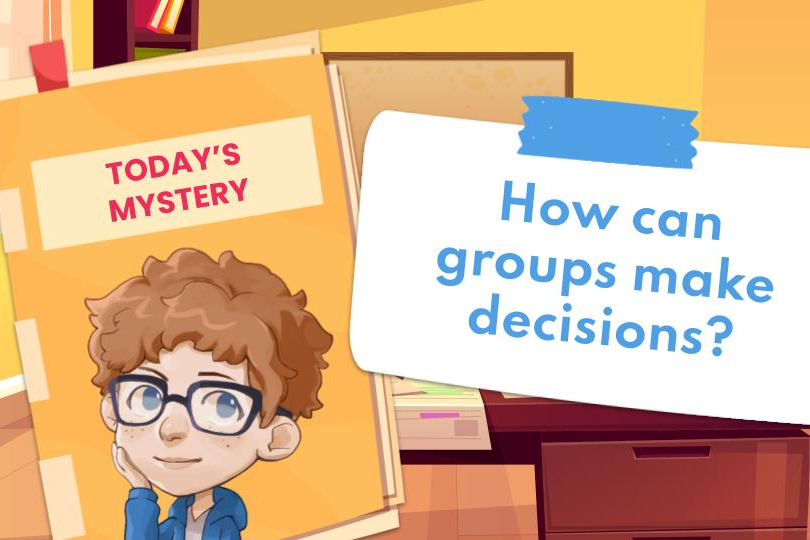iCivics Election Headquarters
The best way to strengthen our democracy is to teach it. Presidential elections provide one of the most visible teachable moments for civic education.
By discussing the election, the processes surrounding it, and the role of the people, we have the opportunity to build young people’s confidence in our country.
With our free election-focused games and nonpartisan teaching resources specific to high school, middle school, and elementary students, you can help young people understand the power of their voice and vote, learn about state, local, and federal election processes, and become informed and engaged participants.
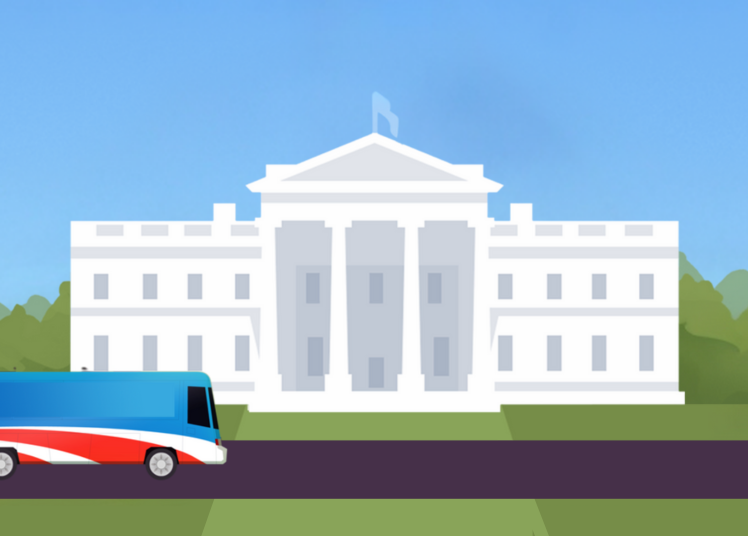
Featured Presidential Election Resources
Not sure where to start? Here are our favorite free election-related teaching resources.
Students Power Elections
Students have a lot of power to influence elections! This unique Young Voter Guide created by students for students, gives them them the ideas, knowledge, and skills to get started.
Evaluating Political Claims with Photos
Photos can be a powerful political resource. In this lesson, students learn how evaluating photos on social media can help them conserve their attention.
2024 Candidate Bios
Introduce your students to the 2024 Presidential candidates with candidate cards, prompts for classroom discussion, and activity ideas.
iCivics Election Games
Put your students into action as they run for president or join the White House staff with these election-focused civics games.
Cast Your Vote
Learn about candidates and issues in this election simulator.
Brief the Chief
Advise the president through major moments in U.S. history.
Executive Command
Being the president is no easy task. Are you up to the challenge?
Convene the Council
Step inside the Situation Room and respond to international events.
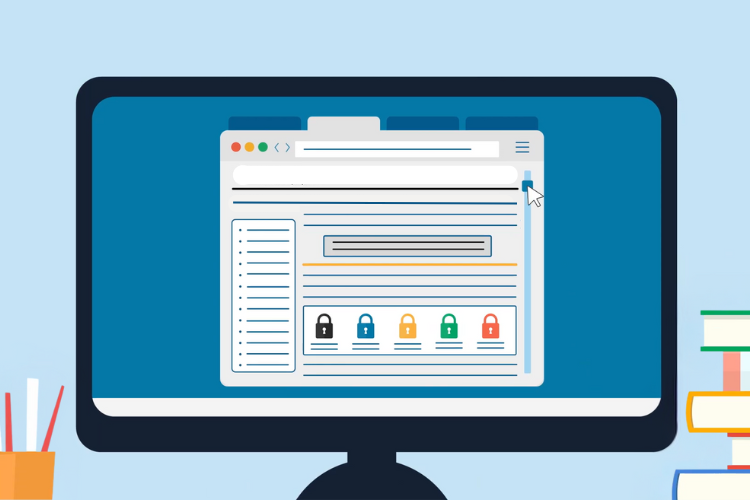
NEW: Civic Digital Literacy
Help students identify trustworthy information online with videos and lesson plans on navigating misinformation, disinformation, and AI-generated content.
Civic Digital Literacy is a collection of resources—developed in partnership with experts at the Digital Inquiry Group—focused exclusively on digital literacy as it relates to our democracy. These classroom-ready resources can be woven into your curriculum where you need them.
Election Videos
Engage high school, middle school, and elementary learners with short, compelling videos about the role of the president and the importance of voting. Use the videos to introduce a topic, start a discussion, or create a launchpad for research.
The Poll Picture
Where do we draw the line? Find out how redistricting turns into gerrymandering, and how gerrymandering negatively impacts people in those districts.
Gerrymandering: Where Do We Draw the Line?
Where do we draw the line? Find out how redistricting turns into gerrymandering, and how gerrymandering negatively impacts people in those districts.
The Spectrum of State Election Laws
Voting laws vary by state. Where do your state’s laws fit on the wide spectrum of election laws across the country?
How Artificial Intelligence Could Influence Elections
Learn about the growing ways in which artificial intelligence can be used to influence elections.
Who Chooses the President?
Article II of the U.S. Constitution creates the office of the President, determines how they are selected, and states the oath of office.
Faithfully Execute
Article II of the U.S. Constitution gives powers to the president with the responsibility to “take care that the laws be faithfully executed.”
The Presidency Changes
Explore how the 20th, 22nd, and 25th Amendments of the U.S. Constitution affected the office of the president.
Our Voices
Teach kids what voting is and the importance of their vote using this music video about a class election.
Differences, Disagreements, and Democracy
Differences and disagreements are expected in a democracy. Teach kids about civil discourse and compromise through song!
Looking for more election-related videos?
Check out these resources from our partner RetroReport.
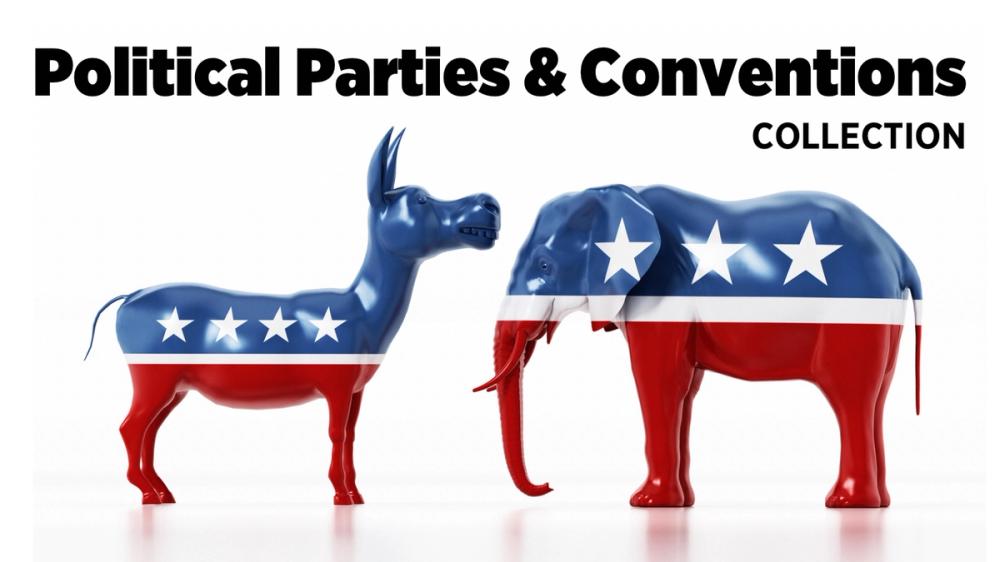
Political Parties and Conventions Collection
A collection of videos from RetroReport that examine historic party conventions that mark a turning point for political parties or the process by which we choose a President.
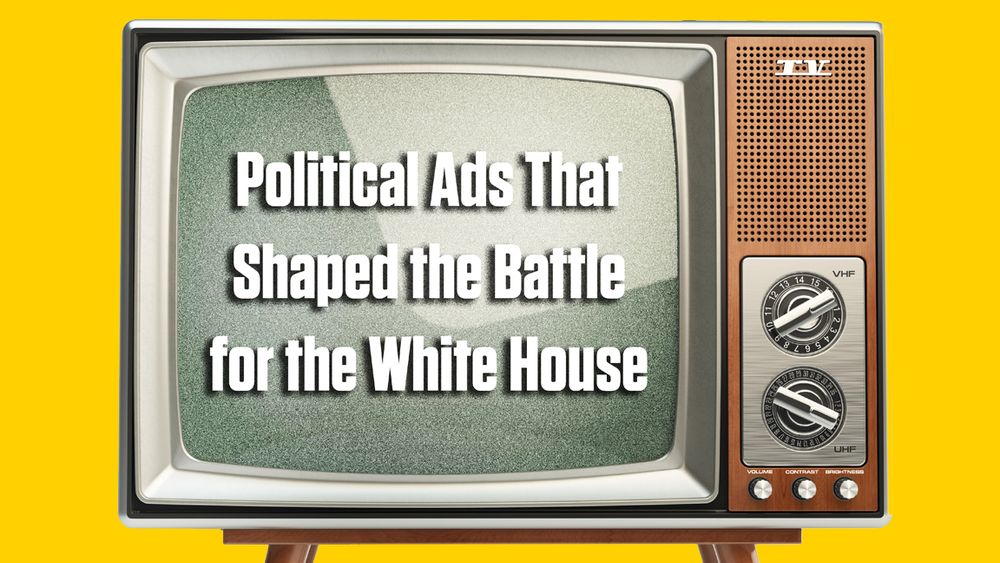
Political Ads That Shaped the Battle for the White House
A collection of videos from RetroReport about rule-breaking and influential political ads.
Presidential Election Lesson Plans
Dive in with ready-to-use lesson plans for high school and middle school classrooms that consist of readings, vocabulary development, graphic organizers, and active participation opportunities.
The Electoral Process
Take a peek into the electoral process with this lesson – from party primaries to the general election.
Got Ballot?
Covering everything from referendums to recalls, this lesson takes students to the voting booth and explains what is on a ballot.
Voting: Will You Do It
In this lesson, students find out who can vote and the differences in voting by state.
Campaigning: It's a Process
In this lesson, students will learn how political campaigns work and all the steps a candidate has to take to get to election day.
Candidate Evaluation
In this lesson, students evaluate hypothetical candidates by establishing and applying their own criteria for selecting public officials.
The Fourth Branch: You!
Students learn the role of citizens and how they can influence the government.
Customizable Slide Decks
Explore customizable Google Slide Decks of our most popular elections lessons, ideal for PearDeck or Google Classroom. Make your own copy to use as-i, or customize to meet your needs.
Popular v. President
Can the candidate who wins the majority of the popular votes miss out on being president?They can, and it’s happened before.
Voting: Will You Do It?
Voting isn’t a requirement, but it is our responsibility and our right. And it’s the most direct way that every citizen can influence government. Will you do it?
Campaign Cash
Every election, candidates spend a lot of money on their campaign. Do you know where the candidates get that money and what they spend it on?
One Big Party?
Students learn about the role of political parties in the United States and their influence on our political system.
Cabinet Building
Take a look at the history of the presidential cabinet, how the cabinet is built through the confirmation process, and why this elite group of people matters to you.
First 100 Days
Discover the history behind the “First 100 Days” and its impact on the American presidency.
Election Infographics
Provide visually appealing, graphically concise, substantive overviews of key concepts using iCivics infographics.
Running for President
Lace up your shoes and learn how candidates run the race to become President of the United States!
Six Roles of the President
From Commander-in-Chief to Chief Executive—keep track of the many roles of the president with this printable infographic for your classroom!
Campaign Cash
Every election, candidates spend a lot of money on their campaign. Do you know where the candidates get that money and what they spend it on?
The Spectrum of State Election Laws
Voting laws vary by state. Where do your state’s laws fit on the wide spectrum of election laws across the country?
Rank Your Choice
What is ranked-choice voting? How does it work? This infographic will walk you through the process!
The Poll Picture
Public opinion polls can give insight into people’s priorities and opinions, and give candidates and the media a sense of the whole picture.
Plug Into Power with the U.S. Census
The U.S. government circulates a census every 10 years. This infographic will help your students know how to make it count.
Peaceful Transfer of Power
For over two centuries, American political offices have peacefully transferred power after every election.
Gerrymandering: Where Do We Draw the Line?
Where do we draw the line? Find out how redistricting turns into gerrymandering, and how gerrymandering negatively impacts people in those districts.
Leadership & the Agenda
Members in the House and Senate decide who will take on important leadership roles. Teach students about how party leaders shape the congressional agenda.
Order Up! Executive Orders
Order up! What the president says goes… or does it? Discover what executive orders are, how they work, and what they can be used for, and how they are limited.
A Movement in the Right Direction
How did women win the right to vote? Explore how the women’s suffrage movement spread across the United States beginning in the late 1800s.
WebQuests
Help students connect civics concepts outside of the classroom with these WebQuests, which guide them through pre-selected online resources to learn more.
Who Represents Me?
Do you know who represents you in the federal, state and local government? Do you know how to get in touch with them?
Being President
Find out what the president does every day, who the president’s helpers are, and how the president’s job affects your life.
Reapportionment & Redistricting
Do you know how many representatives your state has in the U.S. House of Representatives or how the number is determined?
Voting by Mail
What does it mean to vote by mail? Let students see what a mail-in ballot process is like, and discover the advantages and disadvantages of all-mail elections.
Elections, Voting & Government Curriculum Units
Looking to dig deeper? These standards-aligned units offer a comprehensive study. Introduce students to the electoral processes or teach about the importance of local elections by exploring what state and local governments do.
Elections and Voting
Introduce students to the electoral processes of the United States and guide them to a deeper understanding of concepts and processes across the political spectrum through simulations, presentations, vocabulary-building activities, and a mock election.
State and Local Governments
Teach students about the importance of local elections by exploring what state and local governments do. Students will look closely at the state government structure and functions, lawmaking process, and discover local governments including county, municipal and tribal.
Election Resources For Elementary
It isn’t too early to get young learners engaging with elections! When students see their role in helping shape our country, they believe in its future. These resources are accessible, relevant, and meaningful for younger learners.
What Makes a Good Leader?
Every community needs leaders. But how do we choose them, and what makes someone a good leader?
How Can Groups Make Decisions?
Charged with the task of choosing how to plan an activity for the entire class, students will vote, tally, and recount votes.
Differences, Disagreements, and Democracy
Differences and disagreements are expected in a democracy. Teach kids about civil discourse and compromise through song!
Our Voices
Teach kids what voting is and the importance of their vote using this music video about a class election.
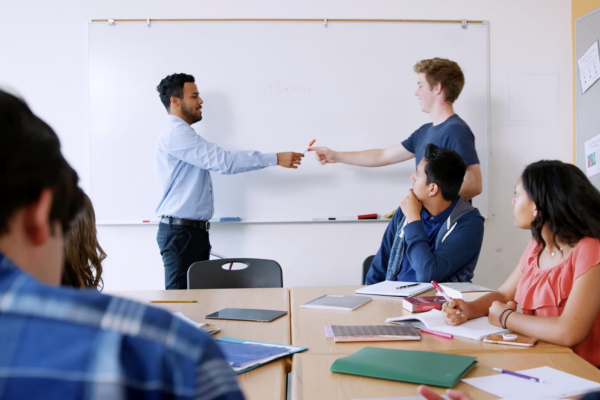
Your Roadmap for Teaching Current Events
Discover professional development resources, including brief informational videos and teacher guides, to equip you to facilitate constructive, civil discourse in your classroom.

